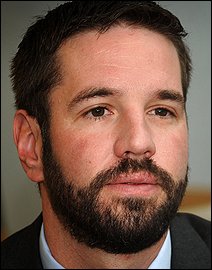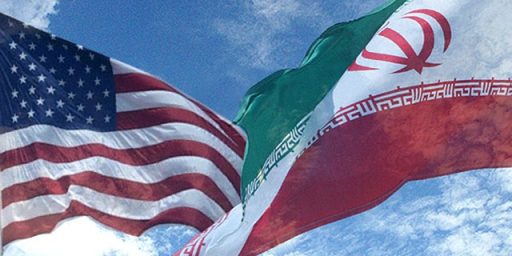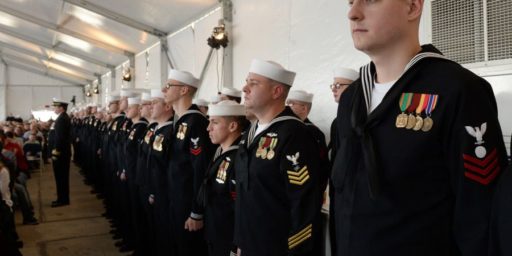Minor FSO Resigns, Panic Ensues

An incredibly junior foreign service officer has resigned over disagreement with our AfPak policy, prompting a high level scramble within the administration and a long feature in the Washington Post.
As I wrote in “While Obama Dithers,” a piece for New Atlanticist,
They’ve brought this on themselves. Granted, President Obama inherited this war and his people may have fought it differently had they been in charge during the first seven years. (An unlikely counterfactual, to be sure, since he was an unknown state senator at the time.) But it’s a fight he clamored for during the campaign, stressing it as “a war of necessity.” And he doubled down almost immediately, sending more troops and firing a well-respected four star commander to replace him with a counterinsurgency guru. But now he’s dithering, signaling in the press that he’s lost confidence in the strategy and can’t make up his mind as to what to do now.
Yes, it’s complicated. There are a lot of unknowns and the number of American casualties is escalating. But those men are dying while their commander-in-chief hems and haws, trying to decide whether to heed the expert advice of the general he hand-picked three months ago, do a 180 and go with a counter-terror strategy as preferred by Vice President Biden, or some politically expedient middle course. Their public indecisiveness certainly isn’t doing much to bolster the resolve of the Matthew Kohs of the world, much less the young soldiers, sailors, airmen and marines being asked to risk their lives while they wait.
Much more at the link.
UPDATE: Alex Massey has published an excellent counterpoint, “Afghanistan: A Modest Case for Dithering,” that I’ve republished at New Atlanticist.
UPDATE II: Kevin Drum shares my sense that this story is rather odd.
Hoh “already had a lot of frustration” after two months? And he quit two months after that? Unless Hoh is the fastest learner on the planet, that really doesn’t seem like enough time to get very far up the learning curve.
Otherwise, like me, he thinks Koh’s analysis has substantial merit.






The fact is that Obama, more than anyone, owns this war, proclaiming it moral necessity long ago in order to destroy Bush’s choice of converting Iraq to the West. He did this to get elected, in part, with that deceit.
The problem with relative truth is that while it works for those who use truth only as a covenient weapon to win a particular battle, in the long run, it comes back to haunt you. How soon before he waves the white flag -the one that is so well worn, indeed,worn out by the left?
He promised transparency and he is delivering big time. We knew from the beginning he didn’t mean a word he said. No wonder morale is down.
It’s going to be tempting for partisans of both parties to paint the disagreement over just what to do in Afghanistan (not to mention why, the question I asked the other day) as a partisan squabble. It isn’t. The parties aren’t speaking with a single voice on the subject. You can find the full spectrum of opinions within each party.
It is, however, a political question because that’s the nature of our system: human, therefore political; civilian control therefore influenced by domestic politics. It’s unreasonable to be upset about judgements of war, peace, and strategy being political because that’s inevitable in any system and the intrusion of domestic politics into those decisions is structural in our system.
I think it’s reasonable to expect President Obama to have a coherent strategy on Afghanistan and to support that strategy sufficiently and consistently enough that it can succeed. I also think it’s reasonable that he be allowed a certain amount of time in which to do so. The clock began ticking on January 20th. Simply from a political standpoint I don’t think he has a great deal of time left.
That was the worst piece I have seen you write, and I think I have read most of your stuff for over a year now, longer on an occasional basis. On one hand you seem to support the Koh’s conclusions that we can no longer reach a successful ending in Afghanistan. OTOH, you seem to suggest we should follow the “expert” advice of McChrystal. Which is it? Shouldn’t the election change our plans or at least cause a reassessment? If the answer is so obvious, please tell us.
I suspect that all this “dithering” (use of the word of course is paying homage to Cheney) is a reflection of the fact that when you put everything on the table, including the $10 billion a month price tag, it gets pretty difficult to justify being there. I think it also reflects the fact that we have already been there for 8 years. Have we reached the point where we have lost all credibility with the Afghans, especially the Pashtuns, apparently part of the Koh argument. No one knows if you can occupy a failed Muslim state and turn it into a pro-Western democracy in 30 years and spending trillions of dollars. Should we take that gamble?
Yes, I know that what is being pushed for is a shorter time commitment, but given the Pakistan refuge, it is difficult to see how a shorter time commitment can accomplish much. Until we are in the position of having the Afghans ask us to stay, rather than our insisting they take our help, this does not go well.
Steve
James:
He’s older and more senior than Andrew Exum who is a major player in the debate. This guy was apparently extremely well-regarded, so why not pay attention to his concerns?
Odd to dismiss this out of hand.
–BF
Obama appointed McChrystal mere months ago because he wanted to do COIN. Now, Obama is hemming and hawing.
If, say, the election fiasco opened his eyes, then fine. But make a decision and carry it out. Carrying out an internal debate in the papers while troops are in the field getting killed is horrible, horrible policy.
My point isn’t to degrade Koh’s opinion which, as I say, I share. My point is that, surely, people more senior in the chain of command have considered these things. If not, there’s serious dereliction of duty.
I’ve simply never heard of officials at the highest level begging a junior officer to stay on for fear that he would leave and talk to the press. It’s simply bizarre.
“Carrying out an internal debate in the papers while troops are in the field getting killed is horrible, horrible policy.”
Blindly following your General’s recommendations is good policy? Surely you have been following the debates on the difference between determining strategy and tactics? We need policy set by someone higher than McChrystal who is focused on how to accomplish a task, not on what we should be attempting. I would agree that by this time, we should have enough discussion to make some decisions. The only remaining data points of big impact being the next election and what is going on in Pakistan. BTW, let me heartily recommend Paul McGeough’s most excellent piece on Afghanistan. IIRC, he has spent a lot of time in country and as an Aussie, is free of some of our political overlay. McChrystal’s report is more than just a request for more troops.
http://www.theage.com.au/opinion/society-and-culture/afghan-insurgency-given-new-life-by-their-enemies-20091023-hd58.html
Steve
Yes, I’ve followed the debate. And, again, I think Hoh is likely right.
But Obama has been either president, president-elect, or a candidate for president for going on four years now. It’s long past time for him to figure out what our grand strategy for Afghanistan should be.
Interesting, Dave Schuler says their’s plenty of time to decide, Steve says it’s already too late.
I don’t have a problem with dithering, it’s the appearance of dithering, plus the heightened expectations being put into play here.
One of the main reasons I voted for Obama was in the hope that he WOULD dither when it came to committing our troops overseas.
News flash: They are already committed. Indeed, Obama committed more of them just a few months ago.
I thought I heard yesterday that the Administration had decided what to do. They were just waiting until after the election in November to make the announcement. The US elections